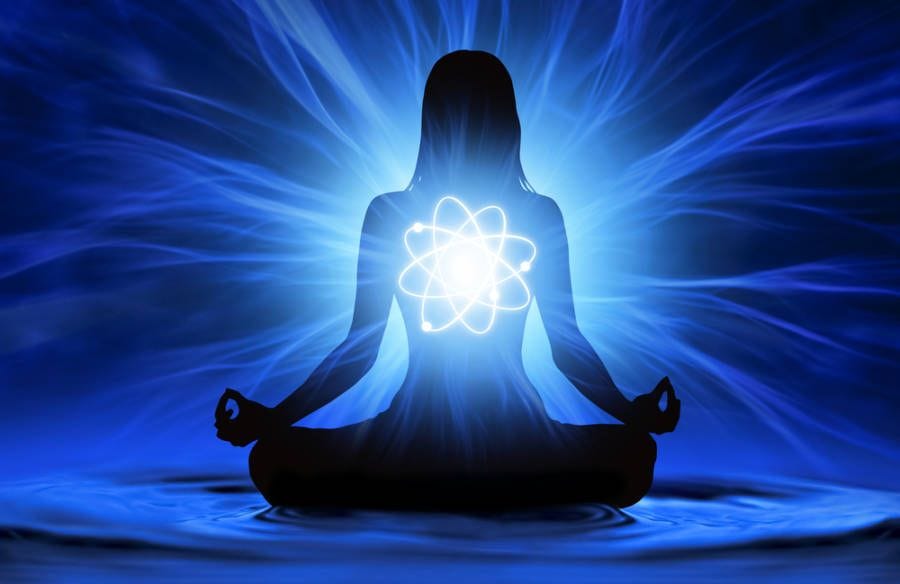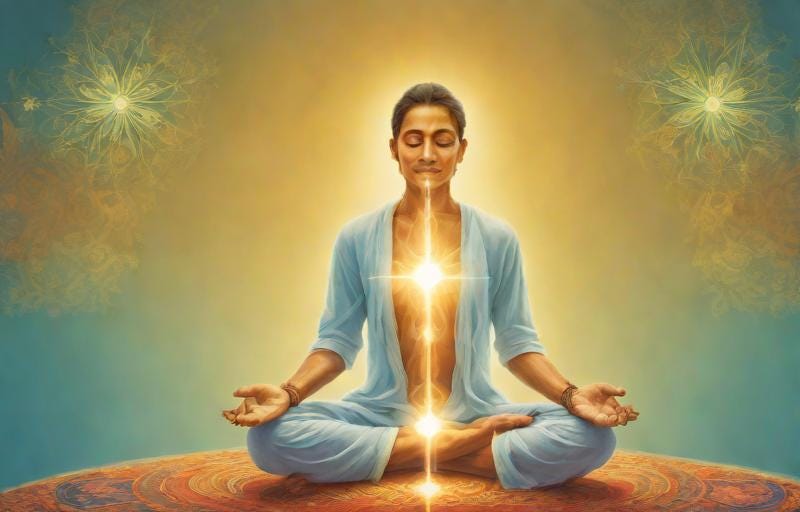Is it a Sin or Not? Wasting Time on the Debate already Decides your Fate!
Inspiration for Ismailis: Angelic Soul Formation
Throughout humanity’s religious or spiritual history, the divinely appointed Imams, or Allah’s Khalifas, have always had “Callers to the Truth” (Du‘at li’l-Haqq) who were concerned with guiding their fellow spiritual brothers and sisters — those who responded to the Imam’s Call (Da‘wa) — so that they may advance on the spiritual path (tariqa) of knowledge and good deeds. Through esoteric knowledge received from the Imam of the time, and with guidance and encouragement on how an Ismaili seeker or wayfarer (salik) can purify himself or herself on all three levels — physical, spiritual and intellectual — Ismaili da‘is, hujjats, babs and pirs were committed to helping the rest of the Ismaili jama‘at, especially those who showed signs of being ready to struggle on the path of spiritual perfection. To be more specific, the Imam’s ‘intellectual army’ produced religious literature and held special wisdom sessions (majalis al-hikma) inspiring seekers to transcend or sublimate desires that typically cause people to sin and, thereby, remain stuck or attached to the lower, temporal aspects of this physical world (dunya).
With the aim of helping their students and disciples realize the true reality (haqiqah) of their own selves or souls so that they may experience the mystical truth taught by Imam ‘Ali⁽ᶜ⁾ that, “the one who recognizes their soul, indeed recognizes their Lord” (man ‘arafa nafsahu faqad ‘arafa rabbahu), the wise Ismaili sages and masters of esoteric science endeavored to show, theoretically and practically, how a spiritual child of the Imam of the time could activate what is called their “subtle form” by attaining a “pure soul” that accepts the spiritual or noetic nourishment of the Universal Intellect (‘Aql-i Kull). Pir Nasir-i Khusraw, one of the most accomplished Ismaili spiritual sages who rose to the exalted rank of “hujjat” (proof of the Imam’s light and knowledge), reveals for his readers that
The ‘pure soul’ accepts the favors of the [Universal] Intellect in their totality, rejecting nothing. The favors of the Intellect to the soul are nourishment in order to bring forth the subtle form (ṣūrat-i laṭīf).
[…] pure souls obey what the Intellect tells them. Such souls are approved of and accepted by the Intellect…. Impure and vile souls who do not obey what the Intellect tells them and do not abstain from what it prohibits and do not accept its favors, and follow their own desires, are driven out, cast away and despised…It is because of this that some souls merit reward and others deserve punishment.
Nāṣir-i Khusraw, Wajh-i Dīn, tr. Faquir Muhammad Hunzai, Discourse 11 (unpublished draft translation).
An Ismaili spiritual seeker who begins to become aware of the need for proper spiritual nourishment or intellectual sustenance for their soul will, if they are disciplined and truly hungry, struggle with their lower, carnal soul (nafs-i ammara) and strive to purify and elevate their soul by remaining open to blessings and favors of the Universal Intellect. Such a spiritual wayfarer will begin to realize experientially (i.e., feel deep within their soul) that actions and behaviors that hinder and stunt the development or unveiling of their ‘subtle form’ (ṣūrat-i laṭīf) need to be eradicated. Anything which is — or even might be — sinful will keep one feeling spiritually “heavy” or “dense” and thus, stuck within the corporeal or physical dimension. Whatever it is, if it causes one to be confused and distressed regarding whether it is a sin or not, must be let go of or transcended, for a spiritually heavy or impure soul will most certainly be unable to perform (or perform well) religious and spiritual acts of worship, such as religious meditation (‘ibadat-bandagi).
If a believer, particularly one who is already somewhat “awake” and conscious of their spiritual thirst and hunger, is unable to regularly connect with or elevate their soul toward the spiritual light of the “Higher world” through ‘ibadat, then whatever one is doing that is causing one to remain in such a state — whether it is technically a sin or not — will inevitably cause one’s soul to “rot”. Such a self-inflicted punishment is (at least one aspect of) what Pir Nasir-i Khusraw means when he says “impure and vile souls who do not obey what the Intellect tells them and do not abstain from what it prohibits and do not accept its favors, and follow their own desires, are driven out, cast away and despised.”
The sincere spiritual children of the Imam who are fortunate enough to have the discipline and conviction to cast off the heavy chains and shackles that previously kept their souls trapped, so to speak, or in a “dense” state, i.e., preoccupied and obsessed with corporeal pleasures and desires that pull one down to the physical and materialistic world, will — with God’s grace — be able to better concentrate and practice more and more rewarding ‘ibadat-bandagi (religious meditation). With the spiritual healing and health that comes with nourishment from the Universal Intellect, one’s soul may begin the process of transforming into a “pure soul” which, as Pir Nasir-i Khusraw assures us, “accepts the favors of the [Universal] Intellect in their totality…in order to bring forth the subtle form (ṣūrat-i laṭīf).”
Just as the impure, disobedient soul is driven further away from its Lord/Sustainer (Rabb), the more one purifies his or her soul through knowledge, obedience, and worship, the closer to the light of the Universal Intellect — Who accepts such pleasing, luminous souls — he or she will be (89:27-30). That human beings have this unique ability to develop, elevate and perfect their souls is confirmed for us by our magnificent 48th Imam, Mawlana Sultan Muhammad Shah, salawatu’llahi ‘alayhi, who writes in his Memoirs for all to read:
Every individual, every molecule, every atom has its own spiritual relationship with the All-Powerful Soul of God. But men and women, being more highly developed, are immensely more advanced than the infinite number of other beings known to us. Islam acknowledges the existence of angels, of great souls who have developed themselves to the highest possible planes of the human soul and higher, and who are centres of the forces which are scattered throughout the Universe.
By developing and elevating his or her soul — “to the highest possible planes of the human soul and higher” — spiritually obedient murids of the Imam become less attached to the ephemeral, physical world (though they certainly still should and do participate in it) and are able to recognize more fully the reality of their subtle form and angelic soul. Since “he who recognizes his soul indeed recognizes his Lord”, such a fully developed (or developing), angelic soul will have, without a doubt, a much greater and more intimate “spiritual relationship with the All-Powerful Soul of God”. Nasir al-Din Tusi, together with Salah al-Din Hasan-i Mahmud — two great, chief da‘is of the 13th century who produced one of the most spiritually edifying and satisfying texts of Ismaili teachings, The Paradise of Submission — illuminate for us the blessed destiny of whoever develops their soul and fulfills their spiritual potential:
The human soul is also the first perfection (kamāl-i awwal) of the natural organic body (jism-i ṭabī‘ī-yi ālī) in possession of life in potentia (dhi'l-ḥayāt bi al-quwwa), by which is meant that it is the prime mover of its parts, the changer of its positions, and the provider of form to the matter of the body. Its initial state is pure potentiality (quwwat-i hayūlāni). For, just as the individual body (shakhṣ) exists potentially in the sperm, so the ultimate perfection of the human being exists in potentia in the soul. The soul’s particular activity is to become, gradually and by degrees, an immaterial form (ṣūrat-i mujarrad) whose very life is actualized in God Almighty.
Naṣīr al-Dīn Ṭūsī (with Ḥasan-i Mahmūd), Rawḍa-yi Taslīm, tr. S.J. Badakhchani, Paradise of Submission: A Medieval Treatise on Ismaili Thought, 36.
Actualizing our soul’s life, or becoming truly alive “in God Almighty”, is the hope and prayer of every sincere Ismaili salik responding to the Imam’s da‘wa to discover or uncover for oneself the absolute truth of one’s own soul and the reality of the “All-Powerful Soul” of the Lord/Sustainer (Rabb) of all souls. Our most noble and magnanimous 49th Imam, Nur Mawlana Shah Karim al-Husayni Hazir Imam, salawatu’llahi ‘alayhi, continues the tradition of inviting his spiritually conscious murids to willingly develop their souls by seeking spiritual and intellectual nourishment and enlightenment in the extra-ordinary, esoteric practice of personal search. “In Islam,” our Imam reminds us,
there are two main attitudes towards the faith, one which is exclusively the exoteric, and the other, which lays emphasis on the esoteric. That is, it encourages each individual to make a personal search in addition to the normal practice of his faith, a personal search to find individual spiritual enlightenment…in the Shia traditions, the role of the soul, the role of the intellect, are particularly important, and in order to develop the spiritual enlightenment and the happiness of the individual, he is entitled to have additional search, additional practice of his faith in bandagi.
Mawlana Shah Karim al-Husayni⁽ˢ⁾
Karachi, Pakistan
November 5, 1991
It is our hope that, with Mawla’s grace, this short article will do its part to further inspire and encourage all who are sincerely striving on the spiritual path of soul perfection. In particular, for those of us who are committed to attaining the “pure soul” but are also (often unsuccessfully) struggling with our a‘māl (deeds, actions) — perhaps intellectually debating internally: “Is it a sin or not?”, and mentally oscillating constantly between “It’s not that bad; it’s probably not a sin” and “It’s got to be wrong; it must be a sin” — it is our heartfelt prayer that what has been written above, as well as the words in the original poem below, will be just what was needed to finally, once and for all, push or pull our imperfect, potential souls to transcend whatever it is that is rotting our poor souls so that we may all be freed from the grip of our inner, personal devils.
Āmīn, Ya Rabba’l-‘Ālamīn!
Khayal ‘Aly Dhanidina
1/8/24
khayal.aly@gmail.com
Follow on Instagram
(khayal.aly; ismaili.poetry; khana_yi_khayr)









So practical - just what I needed to hear today. The fact that I ask the question is enough to suggest it is time to move on! Thank you.
Thanks 🙏